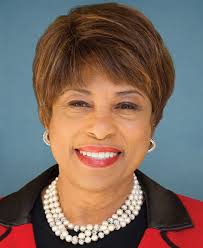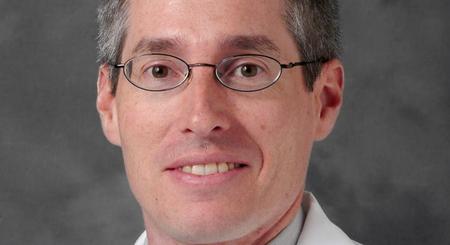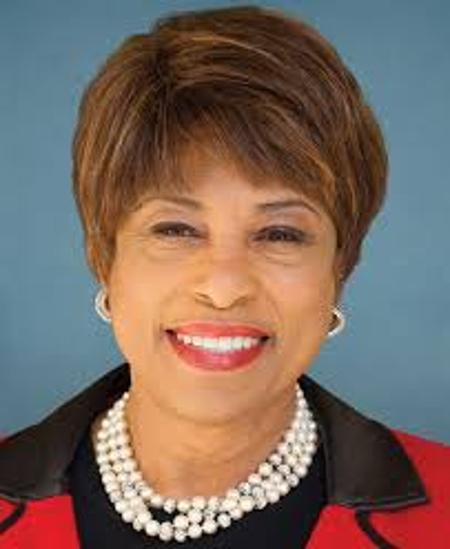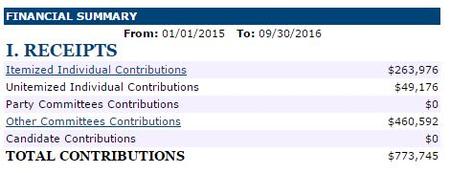14th District Could Be an Easy Win for Brenda Lawrence
This heavily gerrymandered district will be hard for the Republican candidate to win over.

The two major party candidates have taken different approaches in their campaign efforts aimed at the Nov. 8 election in Michigan’s 14th Congressional District, which covers parts of central and southern Oakland County and north and northeastern Wayne County including the Grosse Pointes and part of Detroit.
The incumbent, Democrat Brenda Lawrence is running to keep her seat. A former mayor of Southfield and winner of a fairly high-profile primary two years ago, Lawrence is relatively well known in parts of the district.
Republican Challenger Howard Klausner, who also lives in Southfield, is not as familiar to voters. He’s a doctor at Henry Ford Hospital with a specialty in emergency medicine.

Klausner says while he’s not a celebrity, his low profile should not keep him from winning the race.
“The qualification that someone needs to be in Congress is to be a U.S. citizen over the age of 25,” Klausner says. “I do believe that our Founding Fathers intended for ordinary citizens from all walks of life to take part in the legislative process.”
Klausner says his campaign is a grassroots effort. He says he’s raised about $5,000 so far, and the Federal Election Commission shows no fund-raising reports for him filed through September. His website notes the key issues he wishes to tackle in Congress include national security, healthcare and the economy.
And that’s pretty much where the campaign stops.
Klausner says he has made some public appearances and conducted some interviews, but his overall strategy is simple.
“By talking to people one on one, I hope that they will make a clear and convincing choice and not to vote how they already have done so in the past,” Klausner says.
Lawrence has a different approach. She says having a highly visible campaign helps candidates get the votes.

“I feel anyone running for office should work hard to stay connected because that’s a complaint that you hear a lot,” she says. “How do you get to know [what voters think] unless you go out and stay connected, met with them, talk to them?”

Toward that effort, she raised $773,745 from January 2015 through the end of September, according to the Federal Election Commission with the bulk of those funds coming from political action committees, many of them located out of state.
Lawrence says being seen is important to win votes.
But Robert Lupton, a political science instructor at Michigan State University, says the Democrats have an inherent advantage in the district.
Lupton, who teaches a class on campaign and elections, says he doesn’t believe any Republican challenger could overcome the partisan tilt in the heavily gerrymandered district.
“The non-partisan political report rates the district as a plus-27 in their partisan voting index for Democrats, which is an expected partisan tilt of 27 percent in favor of the Democratic candidate,” Lupton says.
That “tilt” made a strong appearance two years ago when Lawrence garnered 78 percent of the vote to Republican candidate Christina Barr’s 20 percent. Four years ago then-U.S. Rep Gary Peters won 83 percent of the vote in the general election to claim the seat.
“President Obama won his re-election bill in 2012 with 81 percent in the district, and so in the age of polarization, in which congressional support and vote totals are highly correlated with the presidential vote, overcoming that disparity in partisan balance would be extremely difficult for any Republican candidate,” Lupton says.
But Klausner says his strong roots in the area will help him win the election.
He recommends that when voters are in the booth they should ask themselves if they are satisfied with the direction the country is headed. “If your answer is that you are satisfied in the direction we are going in now — the loss of manufacturing jobs, the rise in the federal deficit, not standing up for democracy around the world,” Klausner says. “If those issues don’t bother you, don’t vote for me because I want to change all three of those things.”
Klausner says though the 14th Congressional District has voted overwhelmingly Democratic in the past, he hopes voters will take a close look at each individual on the ticket and make the right decision for themselves.
